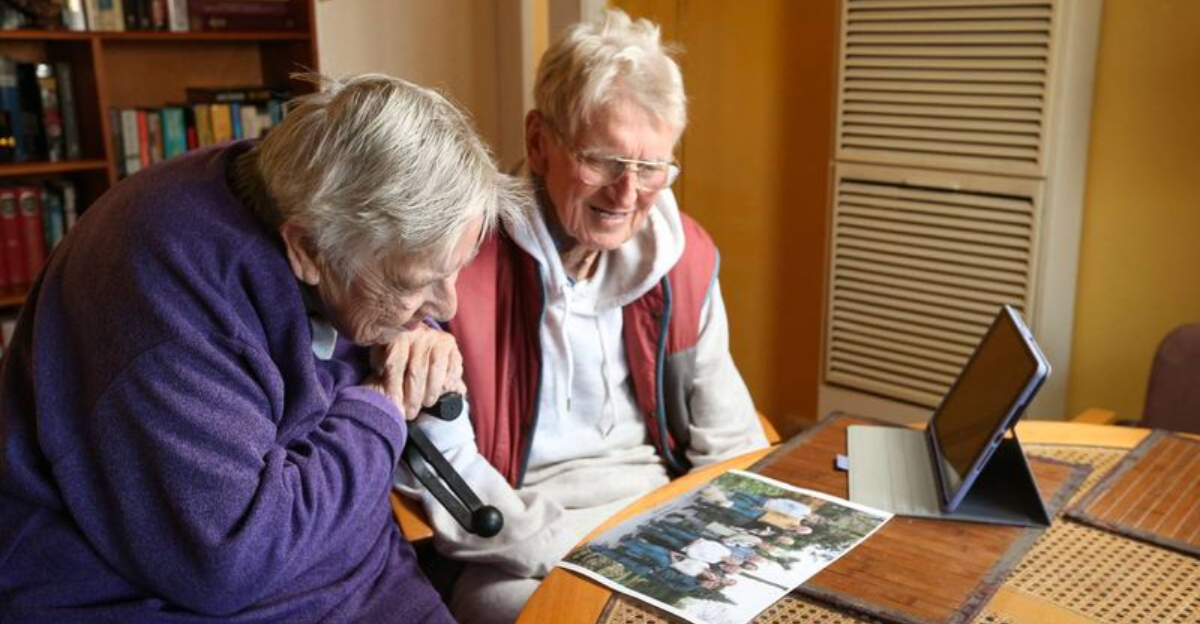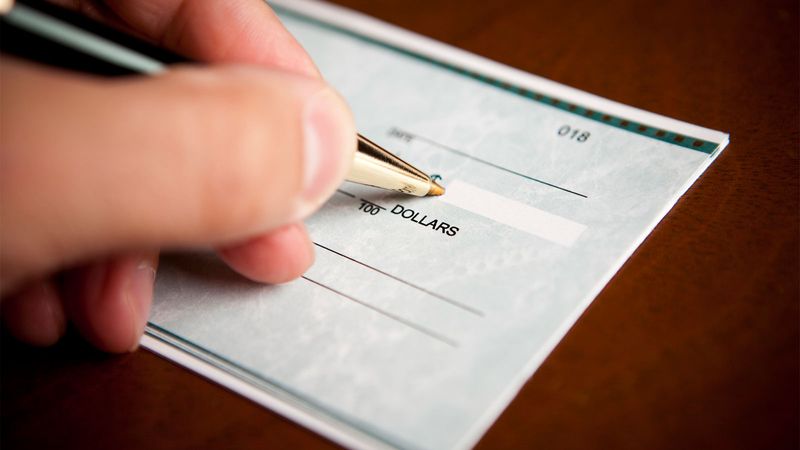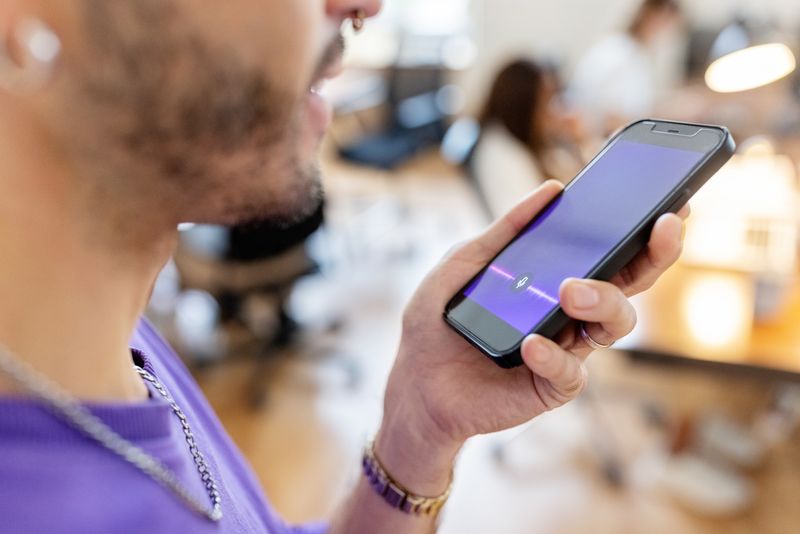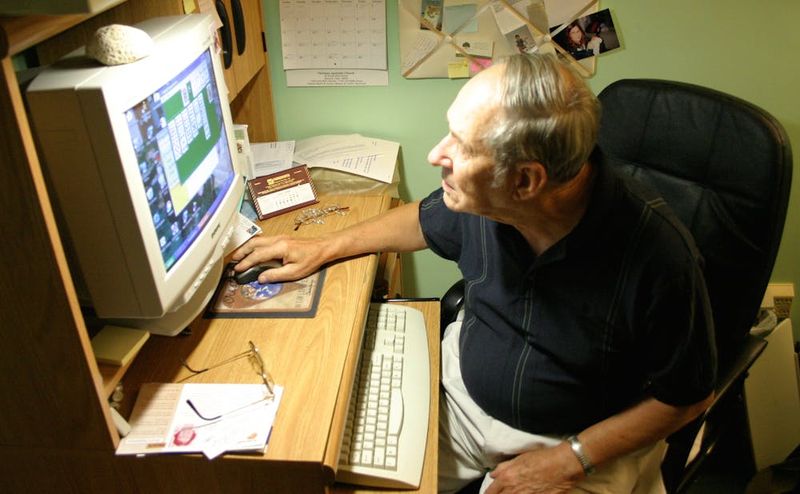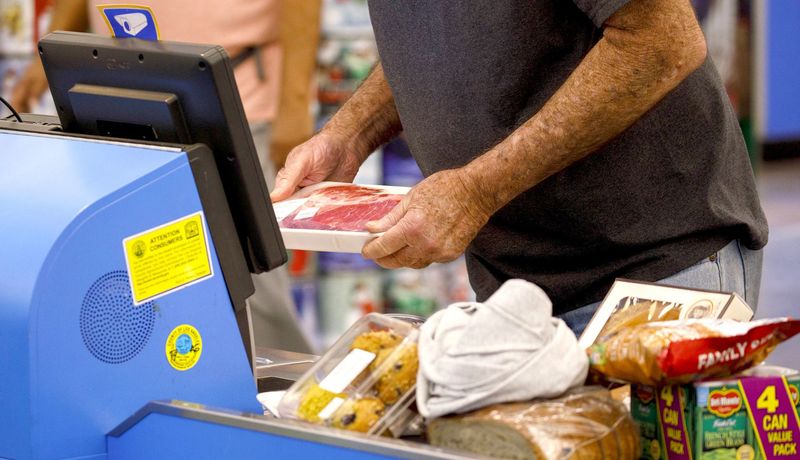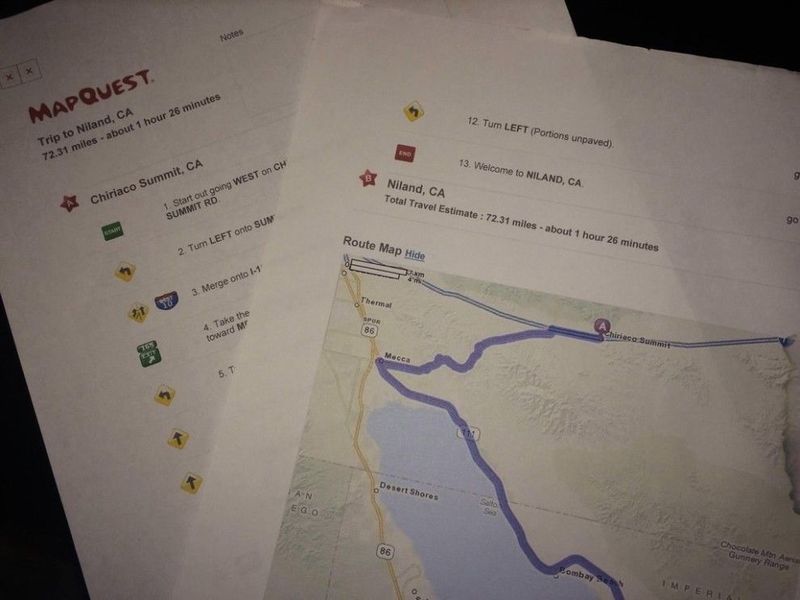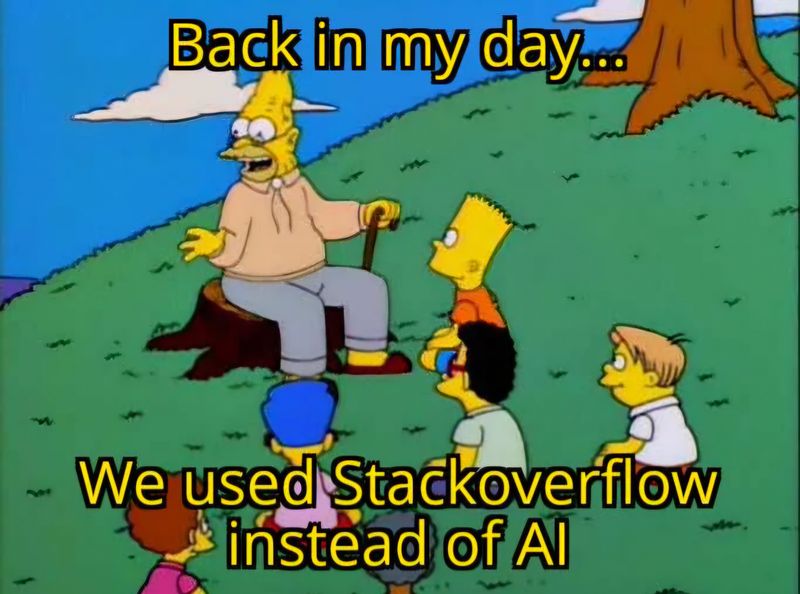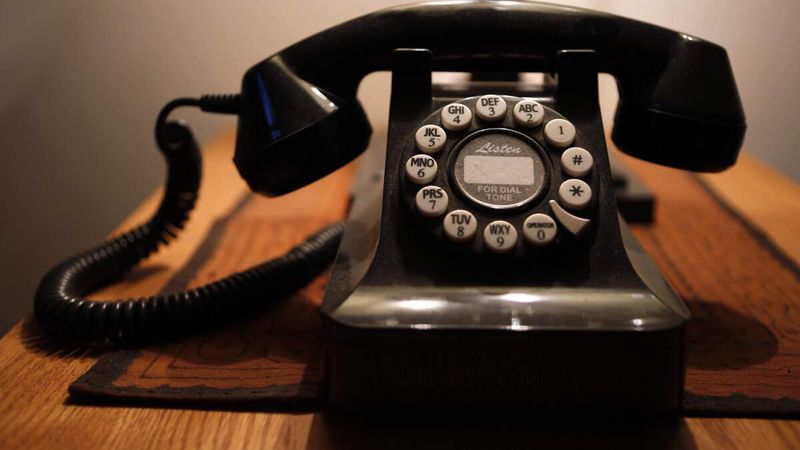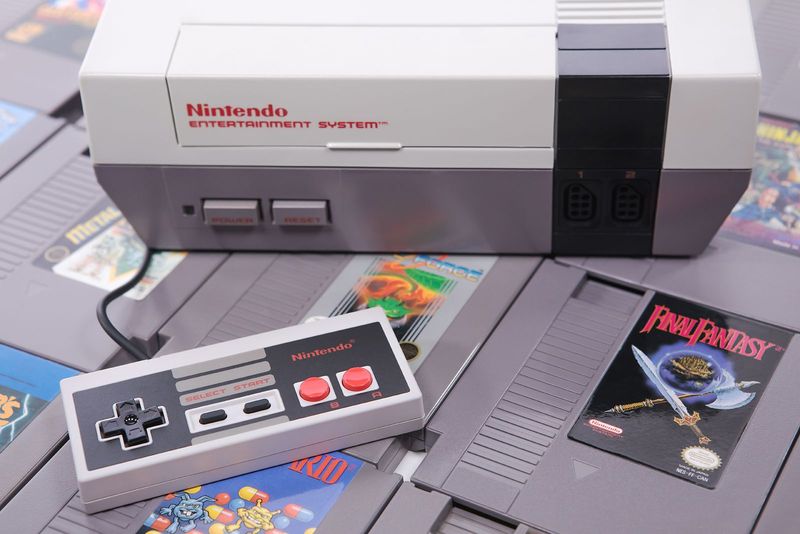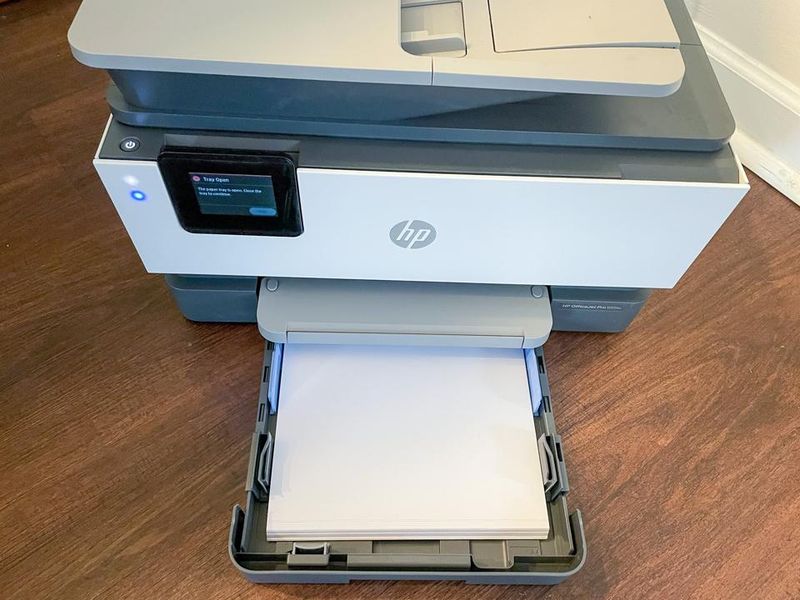Explore the quirky habits of Baby Boomers that, while once commonplace, are now considered criminal offenses in a tongue-in-cheek manner. This satirical take on generational differences humorously highlights the cultural shifts between Baby Boomers and younger generations.
1. Writing Checks at the Grocery Store
Remember when writing checks at the grocery store was the norm? For Baby Boomers, it was a trusted way to handle transactions. However, to Millennials, it’s psychological torture! Imagine standing in a line, watching each pen stroke elongate your wait. The penalty for this outdated practice? Ten years of forced Venmo training.
This humorous sentencing underscores the shift to digital payments. Younger generations are quick to tap and go, while Boomers often appreciate the slower, tactile transaction experience. It’s a clash of convenience and tradition, embodied by one piece of paper.
2. Leaving Voicemails Longer Than 5 Seconds
If you’ve ever received a voicemail that seems more like an audio book, you might have encountered a Baby Boomer. Their knack for articulate, yet lengthy messages is unmatched. Today’s law insists all messages should be a concise ‘k’ text.
While Boomers believe in the detailed update, younger people thrive on brevity. This generational gap is as vast as the messages themselves. The tradition of leaving lengthy voicemails stands almost as an art form, a relic of the past, now humorously critiqued.
Communication evolves, yet storytelling remains timeless.
3. Calling the Internet “The World Wide Web”
For Baby Boomers, the phrase ‘World Wide Web’ evokes nostalgia for the early days of the internet. However, uttering it now can cause younger generations to cringe. The violation? Causing Gen Z to short-circuit from sheer embarrassment.
While Boomers hold onto this term with fondness, the internet has since evolved into a slick, fast-paced world where such phrases seem outdated. Yet, it’s a testament to how far technology has come, from its humble beginnings to its current, ubiquitous presence in daily life.
Each generation leaves its mark, even in digital terminology.
4. Refusing to Use Self-Checkout
There’s a quiet rebellion among some Baby Boomers who refuse to use self-checkout lanes. They prefer human interaction, viewing robots with skepticism. The charge? Rebellion against our robot overlords.
This preference highlights a significant generational divide. Boomers cherish the personal touch, a friendly ‘hello’ from a cashier, while younger shoppers often favor speed and efficiency. As technology advances, this resistance becomes more pronounced. It’s a humorous nod to the ongoing dance between tradition and technology, where the past meets the future in the aisles of our supermarkets.
5. Printing Out MapQuest Directions… in 2024
Imagine clutching printed MapQuest directions in the age of GPS. For many Baby Boomers, this tangible guide remains comforting. However, today’s law mandates a GPS ankle monitor for those persisting in this old habit.
The tactile experience of holding paper maps offers a sense of control and nostalgia. In contrast, younger generations effortlessly navigate with smartphones, trusting digital directions implicitly. This humorous sentence on MapQuest users reflects the shift from physical maps to digital convenience, symbolizing a broader transition in how we journey through life.
6. Saying “Back in My Day” Unironically
The phrase ‘Back in my day’ often surfaces in nostalgic conversations. For Baby Boomers, it’s a gateway to cherished memories, a verbal time machine. However, saying this unironically leads to a humorous punishment: mandatory TikTok dance tutorials.
This highlights the gap between reminiscing about the past and embracing the present. Younger generations roll their eyes, yet Boomers revel in sharing stories from times gone by. The phrase encapsulates a longing for the past, yet the world spins forward, urging everyone to dance to the rhythm of today.
7. Using a Landline as a Primary Phone
For Baby Boomers, landlines symbolize stability and clarity. However, using them as a primary phone today results in a fine: $500 per rotary-dial ring.
While smartphones dominate, landlines offer a nostalgic nod to simpler times. Boomers appreciate the tangible connection, the weight of the handset, and the familiar sound of a dial tone. Younger generations, however, see landlines as relics, overshadowed by digital advances.
This humorous penalty pokes fun at the steadfastness of Boomers, clinging to the past even as technology beckons us forward.
8. Asking “Is WiFi Free Here?”
For Baby Boomers, asking ‘Is WiFi free here?’ is a reflexive inquiry, a nod to the days when internet access was a luxury. Today, this question results in jail time until the lesson of ubiquitous free WiFi is learned.
Younger generations assume connectivity as a given, while Boomers remember a time of dial-up and pay-per-minute internet. This humorous sentence reflects a bygone mindset, prompting us to appreciate how far technology has advanced.
The generational gap in understanding connectivity underscores the rapid pace of technological change and adaptation.
9. Storing Passwords in a Physical Notebook
Imagine storing your passwords in a physical notebook. For some Baby Boomers, this analog method feels secure, a tangible safeguard against digital breaches. However, today, the cybercrime unit sends offenders straight to analog jail for this practice.
While the digital-savvy use password managers, Boomers often rely on the familiarity of pen and paper. This humorous ‘crime’ underscores the clash between digital convenience and analog security.
In an age of cyber threats, the practice of writing down passwords seems outdated, yet it symbolizes a comforting control over one’s digital life.
10. Mailing Birthday Cards Instead of a Facebook Wall Post
For Baby Boomers, mailing birthday cards embodies a personal touch, a thoughtful gesture. Yet today, it’s seen as a quaint offense, resulting in community service: liking 100 Instagram stories.
Younger generations opt for instant, digital greetings, whereas Boomers cherish the tangible connection of paper and ink. This humorous outcome highlights the cultural shift from handwritten notes to digital interactions.
In a world where online communication prevails, the tradition of sending cards reminds us of the value of personal contact and the warmth of a handwritten message.
11. Calling Stores to Ask if They’re Open (Instead of Googling)
For Baby Boomers, calling stores to check their hours was once a necessary task. Now, it’s considered time-wasting in the first degree, with a conviction that echoes nostalgia.
In today’s digital age, a quick Google search suffices, yet Boomers often find reassurance in voice-to-voice confirmation. This humorous charge highlights a generational gap in information-seeking behavior.
The act of calling, rather than searching online, reflects comfort in tradition—a connection to an era where information wasn’t instantly at our fingertips. The shift underscores how technology has reshaped everyday tasks.
12. Referring to Every Game Console as “The Nintendo”
For many Baby Boomers, ‘The Nintendo’ serves as a catch-all term for gaming consoles. However, the gamer jury now rules: offenders must play Fortnite until they learn the difference.
While younger gamers distinguish between PlayStations and Xboxes, Boomers often generalize. This humorous sentence sheds light on the generational disconnect in gaming culture.
The evolution of gaming technology highlights the gap between past and present, where one name once dominated and now a plethora of options exist. Yet, the universal language of play endures across generations.
13. Using the Phrase “Hold the Fort” in Work Emails
The phrase ‘Hold the Fort’ in work emails is classic Boomer-speak, now considered harassment in modern HR terms. Baby Boomers might find comfort in familiar expressions, yet today’s workplaces demand fresh language.
This humorous HR violation reflects the generational transition from traditional to contemporary communication styles. Young professionals prefer concise, modern phrasing.
Language evolves, and with it, the way we communicate at work. This phrase stands as a relic from a time when such words were commonplace, now humorously critiqued as we embrace new corporate lingo.
14. Believing “The Customer Is Always Right”
The adage ‘The customer is always right’ echoes in Baby Boomer retail philosophy. However, retail workers’ revenge now entails a life sentence of reading Karen compilations.
Boomers uphold this belief as a cornerstone of customer service, while younger workers face customers’ unrealistic demands with skepticism. This humorous sentence highlights the disconnect in retail approaches across generations.
The phrase persists as a symbol of respectful service, yet today’s retail landscape calls for balance and boundaries, recognizing the evolving expectations of both employees and customers.
15. Saving Every Plastic Butter Tub as Tupperware
For Baby Boomers, saving plastic butter tubs as Tupperware is a frugal tradition, now leading to recycling boot camp. This practice symbolizes resourcefulness, yet environmental courts see it differently.
In an age focused on sustainability, younger generations choose eco-friendly options. The humorous sentence reflects a shift towards conscious consumption.
Boomers’ habit of repurposing embodies a time when waste was avoided, yet today’s world demands a more sustainable approach. The clash between tradition and modern eco-consciousness highlights evolving values in resource management.
16. Asking “What’s Your Snapchat?” to Grandkids
For Baby Boomers, bridging the digital divide often means asking grandkids for Snapchat usernames, leading to a humorous ban from social platforms. Youth juries sigh as they explain memes and trends.
Boomers seek connection through digital means, yet the platforms and their language remain a mystery. This humorous scenario underscores the generational gap in social media fluency.
As technology advances, Boomers strive to keep pace, yet the rapid evolution of platforms presents challenges. The quest for connection endures, even as mediums change, highlighting the timeless desire to relate across generations.
17. Printing Emails “For Your Records”
For Baby Boomers, printing emails ‘for your records’ offers a sense of security, now leading to a sentence of watching a paperless office documentary on loop.
The printed page provides a tangible record, while younger generations embrace digital storage solutions. This humorous sentence captures the tension between paper and pixels.
The practice of printing symbolizes a time when paper was king. However, as digital technology advances, the need for physical copies diminishes, reflecting a broader transformation in how we manage and store information.
18. Calling All Tablets “iPads”
For Baby Boomers, the name ‘iPad’ has become synonymous with all tablets. Yet, in tech court, they face Android conversion therapy for this misnomer.
While Boomers simplify tech terminology, younger users distinguish between brands and models. This humorous verdict highlights the generational divide in tech literacy.
The evolution of tablet technology mirrors the broader tech landscape, where innovation continually redefines categories. This mislabeling serves as a playful reminder of the ongoing journey to understand and adapt to ever-changing technology.
19. Saying “You’ll Have to Speak Up, I’m Wearing a Towel” on the Phone
The phrase ‘You’ll have to speak up, I’m wearing a towel’ adds a humorous twist to phone conversations. For Baby Boomers, it’s a classic line, now resulting in a mandatory Bluetooth headset for eternity.
This playful sentence reflects the enduring charm of Boomer humor, where practicality meets levity. As technology progresses, such phrases become relics, yet they continue to bring smiles.
The evolution of communication tools transforms how we interact, yet the essence of humor remains a timeless bridge between generations, reminding us of the joys in everyday life.
